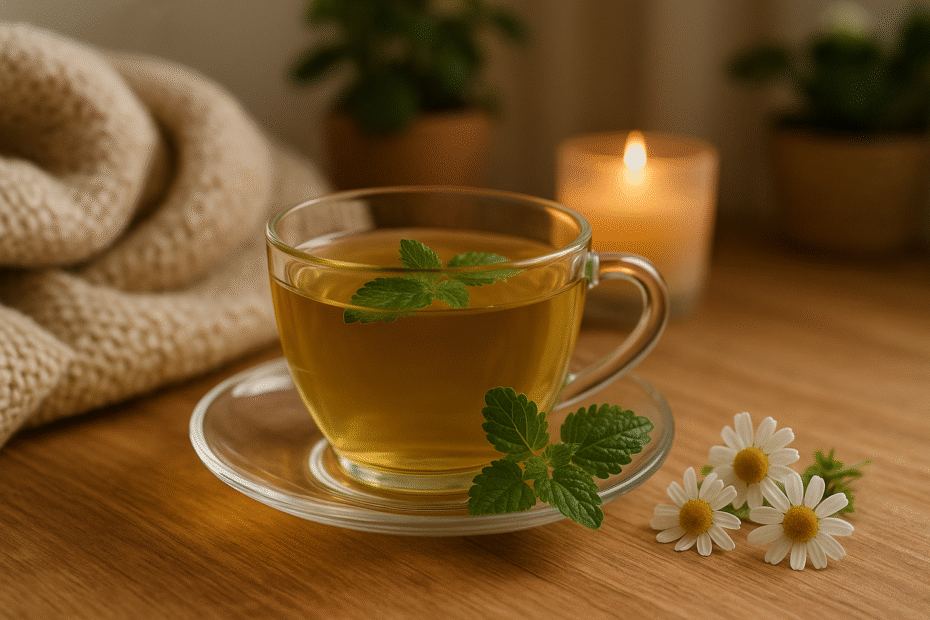In a fast-paced world filled with daily stressors, many people are turning to plant-based remedies to manage mood, reduce anxiety, and support emotional balance. Unlike synthetic drugs, these natural mood enhancers often come with fewer side effects and offer a more holistic approach to mental well-being.
Here’s a science-backed list of the top 7 mood-boosting plants to consider adding to your wellness routine.
1. Saffron (Crocus sativus)
Known as one of the world’s most expensive spices, saffron isn’t just for cooking—it’s also a powerful natural antidepressant.
- How it works: Saffron boosts serotonin levels in the brain
- Research: Clinical trials show it’s as effective as some prescription medications in mild to moderate depression
- Use: Capsules, tea, or culinary spice
PubMed Study confirms saffron’s ability to improve mood and reduce symptoms of depression.
2. Lemon Balm (Melissa officinalis)
This fragrant herb from the mint family is known for its calming and anti-anxiety effects.
- How it works: Increases GABA levels, promoting relaxation
- Benefits: Reduces nervousness, improves sleep, and lowers stress
- Use: Tea, tincture, or supplement capsules
NIH Research supports its use for improving mood and cognitive performance.
3. Ashwagandha (Withania somnifera)
A staple in Ayurvedic medicine, ashwagandha is an adaptogen known for helping the body cope with stress.
- How it works: Reduces cortisol (stress hormone) levels
- Benefits: Promotes calm, improves mood, and enhances mental focus
- Use: Capsules or powder added to drinks
Cleveland Clinic highlights its ability to reduce stress and improve sleep quality.
4. Rhodiola Rosea
This Arctic root is another adaptogen used to combat mental fatigue and enhance resilience to stress.
- How it works: Balances neurotransmitters like serotonin and dopamine
- Benefits: Boosts energy, improves mood, and supports mental clarity
- Use: Standardized capsules
Healthline on Rhodiola explains its role in reducing symptoms of burnout and anxiety.
5. Passionflower (Passiflora incarnata)
Often used to treat insomnia and anxiety, passionflower has a gentle sedative effect.
- How it works: Increases GABA activity in the brain
- Benefits: Calms nerves, supports sleep, and eases restlessness
- Use: Tea, tincture, or liquid extract
WebMD states it’s effective for short-term anxiety and sleep support.
6. St. John’s Wort (Hypericum perforatum)
One of the most researched natural antidepressants, St. John’s Wort is often used for mild to moderate depression.
- How it works: Inhibits reuptake of serotonin, dopamine, and norepinephrine
- Caution: May interact with prescription medications
- Use: Capsules or teas (under medical guidance)
Mayo Clinic outlines both benefits and risks of its use.
7. Chamomile (Matricaria chamomilla)
More than just a bedtime tea, chamomile is a gentle herb that helps with anxiety and emotional tension.
- How it works: Modulates neurotransmitters like serotonin and dopamine
- Benefits: Reduces irritability, promotes calm, and may ease depressive symptoms
- Use: Tea, capsules, or essential oil
NIH Study reports that chamomile extract significantly reduces anxiety levels.
How to Use These Natural Mood Enhancers Safely
When integrating herbal supplements into your routine, follow these best practices:
- Start with one: Introduce one herb at a time to observe effects
- Monitor dosage: Follow instructions on packaging or speak with a healthcare provider
- Avoid interactions: Especially if you take antidepressants or anxiety meds
- Be patient: Herbal remedies may take several days or weeks to show results
Conclusion: Nature’s Support for Mental Wellness
Nature provides powerful solutions for mental wellness. Whether you’re seeking to reduce stress, lift your mood, or find calm, these seven plants offer evidence-based support for emotional balance.
Ready to try natural mood support? Start with a calming tea or supplement—and always prioritize quality and guidance from a health professional.
FAQ: Natural Mood Enhancers
1. Are plant-based mood enhancers safe for daily use?
Most are safe in recommended doses, but it’s best to rotate and avoid overuse.
2. Can I combine different herbs for better effects?
Yes, but consult a qualified herbalist or doctor to avoid interactions.
3. Do natural mood enhancers work immediately?
Some, like lemon balm, may act quickly. Others, like ashwagandha, take weeks.
4. Is it okay to use herbs with antidepressants?
Some herbs, like St. John’s Wort, can interfere with medications. Always consult your doctor.
5. What’s the best herb for anxiety?
Lemon balm and passionflower are great options for fast anxiety relief.
